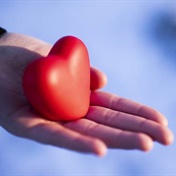Women who take hormone replacement after menopause are at increased risk of developing kidney stones, new research shows.
"It doesn't mean that women should stop taking hormone therapy based on this fact, but it does need to be taken into account when deciding to take the hormones or not," Dr Naim M. Maalouf of the University of Texas Southwestern Medical Center in Dallas, one of the study's authors, told.
From 5 to 7% of postmenopausal women in the US suffer from kidney stones, Maalouf and his colleagues note in the Archives of Internal Medicine. Kidney stones aren't just extremely painful when they are passed out of the bladder; "people who have kidney stones over time tend to have more kidney damage," Maalouf said.
Hormone therapy vs kidney stones
Studies to date of the relationship between hormone therapy and kidney stones have had mixed results. To investigate, Maalouf and his colleagues reviewed data from the Women's Health Initiative, the largest-ever randomised controlled trial of hormone therapy for postmenopausal women.
Their analysis included 10,700 postmenopausal women who had undergone hysterectomy and were randomly assigned to take estrogen or placebo, and another 16,600 who hadn't had hysterectomies and were put on either estrogen and progestin or placebo. Women in the first group were followed for nearly six years, while the women in the second group were followed for seven years.
Women on estrogen or the estrogen-progestin combination were 21% more likely to develop kidney stones during the follow-up period, the researchers found. When the researchers limited their analysis to women who didn't quit taking their medication during the study period, kidney stone risk was 39% greater with the hormones.
Postmenopausal woman's risk rises
Given a woman's baseline risk for developing kidney stones of 7%, the study's results mean that a postmenopausal woman's risk rises when taking hormone therapy to between 8.5% and 10%.
The process by which kidney stones form is "complex," the researchers note, and has both environmental and genetic roots; there are also several points in this process that could be affected by estrogen, they add.
White women are at greater risk of developing kidney stones than women from other ethnicities, Maalouf noted, while obesity has also been associated with an increased tendency to form kidney stones. Drinking plenty of fluids can help prevent kidney stones, while eating too much salt or too much protein can make them more likely to develop, he added. (Reuters Health/ October 2010)
Read more:
Menopause
Kidney stones




 Publications
Publications
 Partners
Partners










